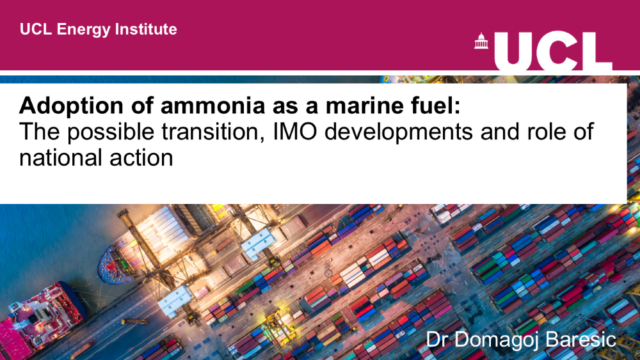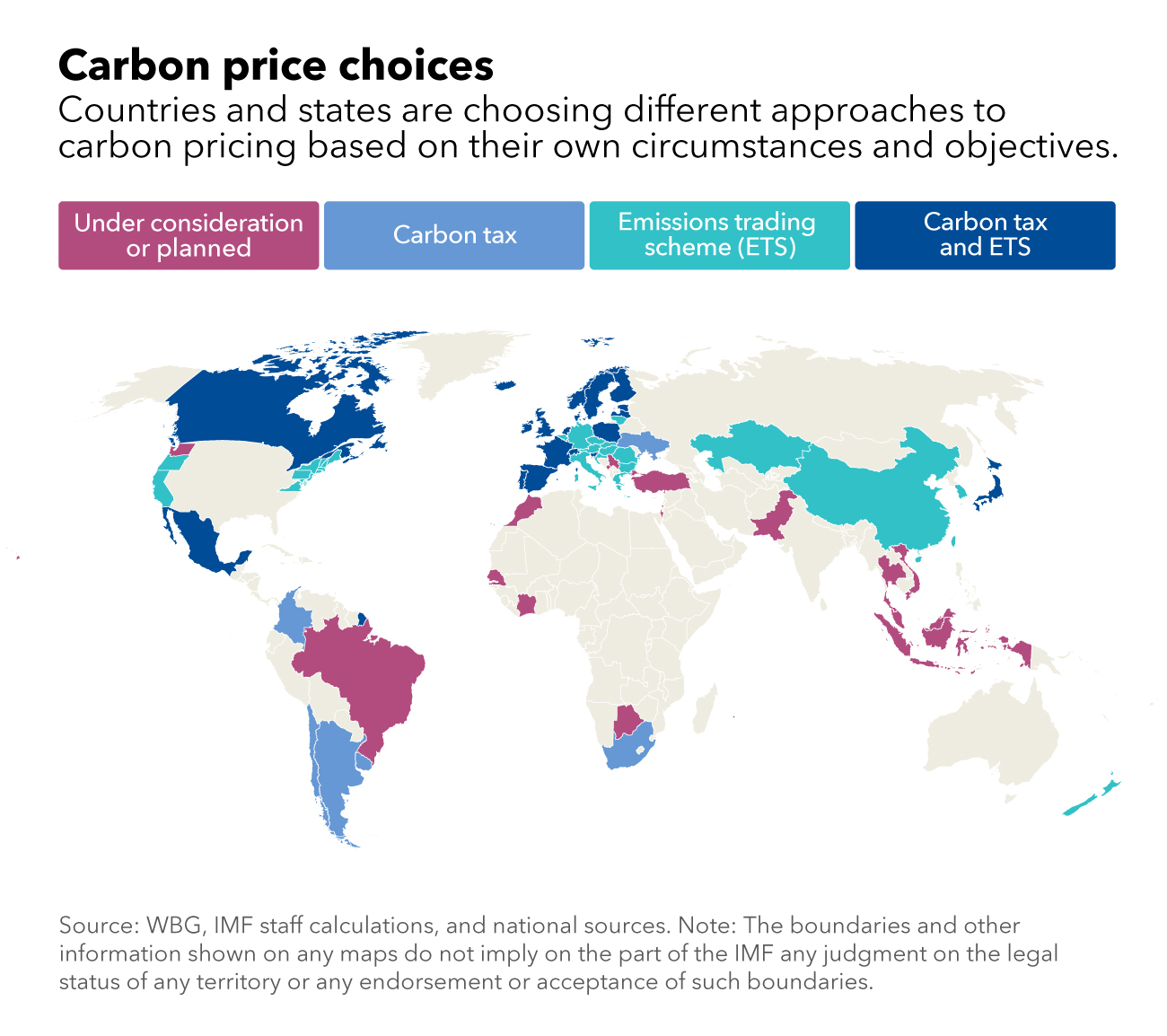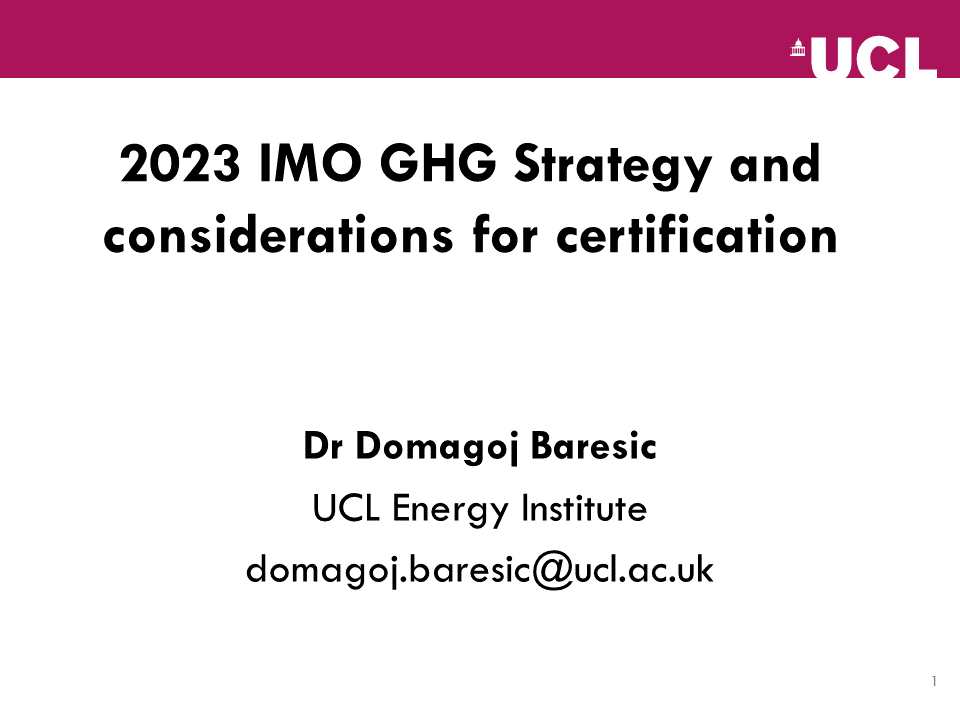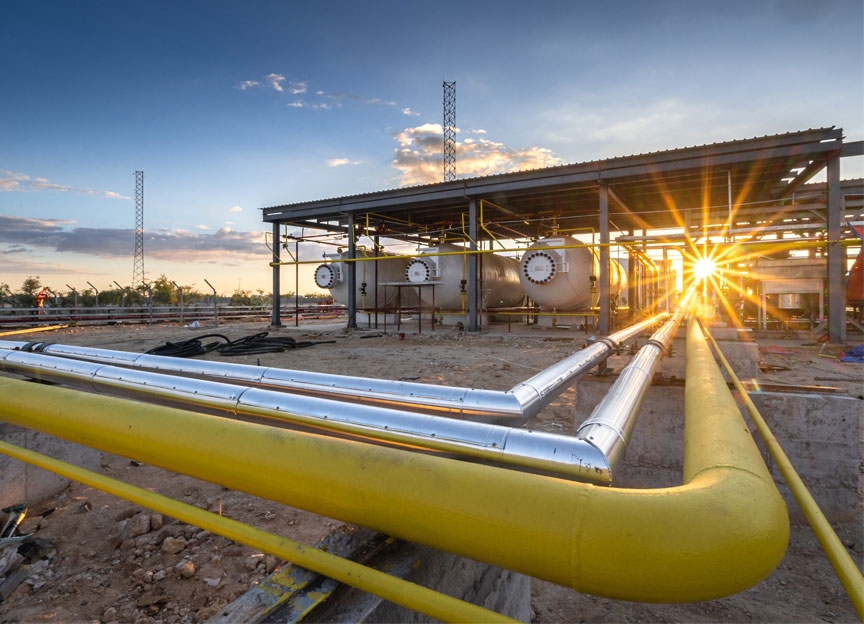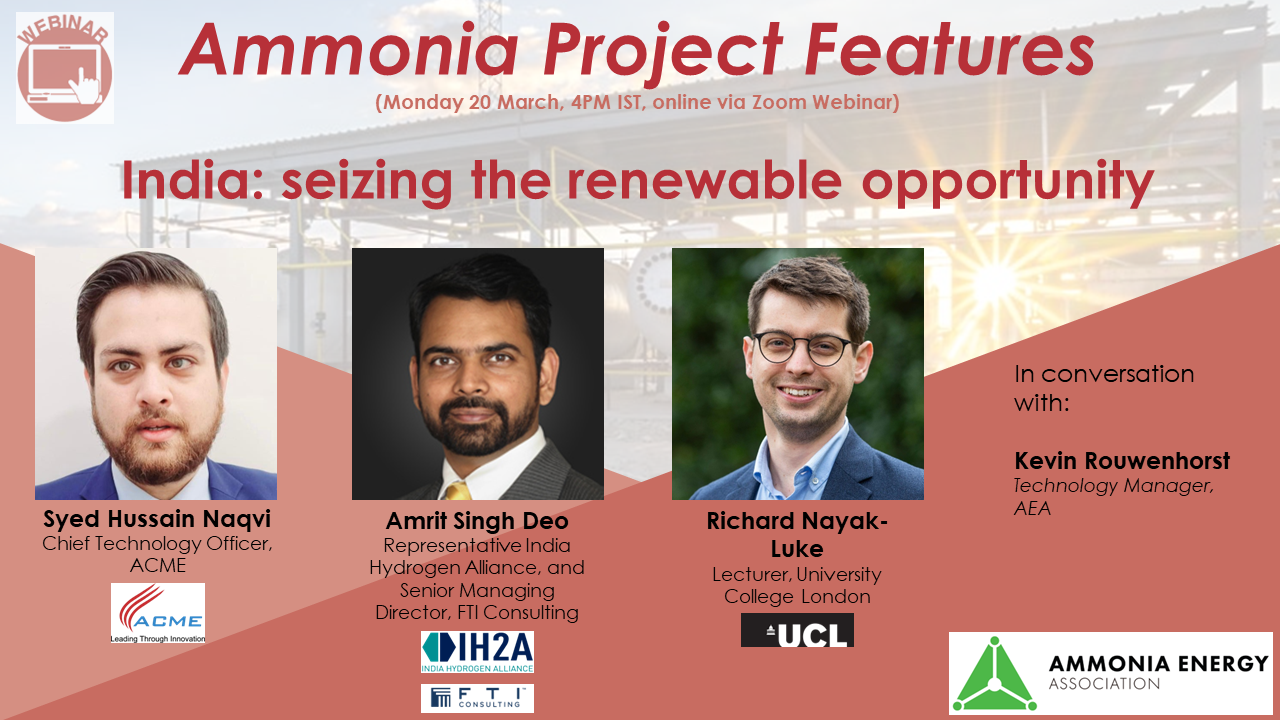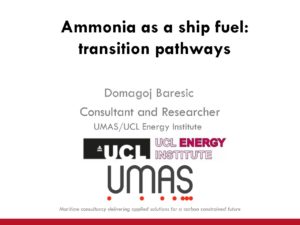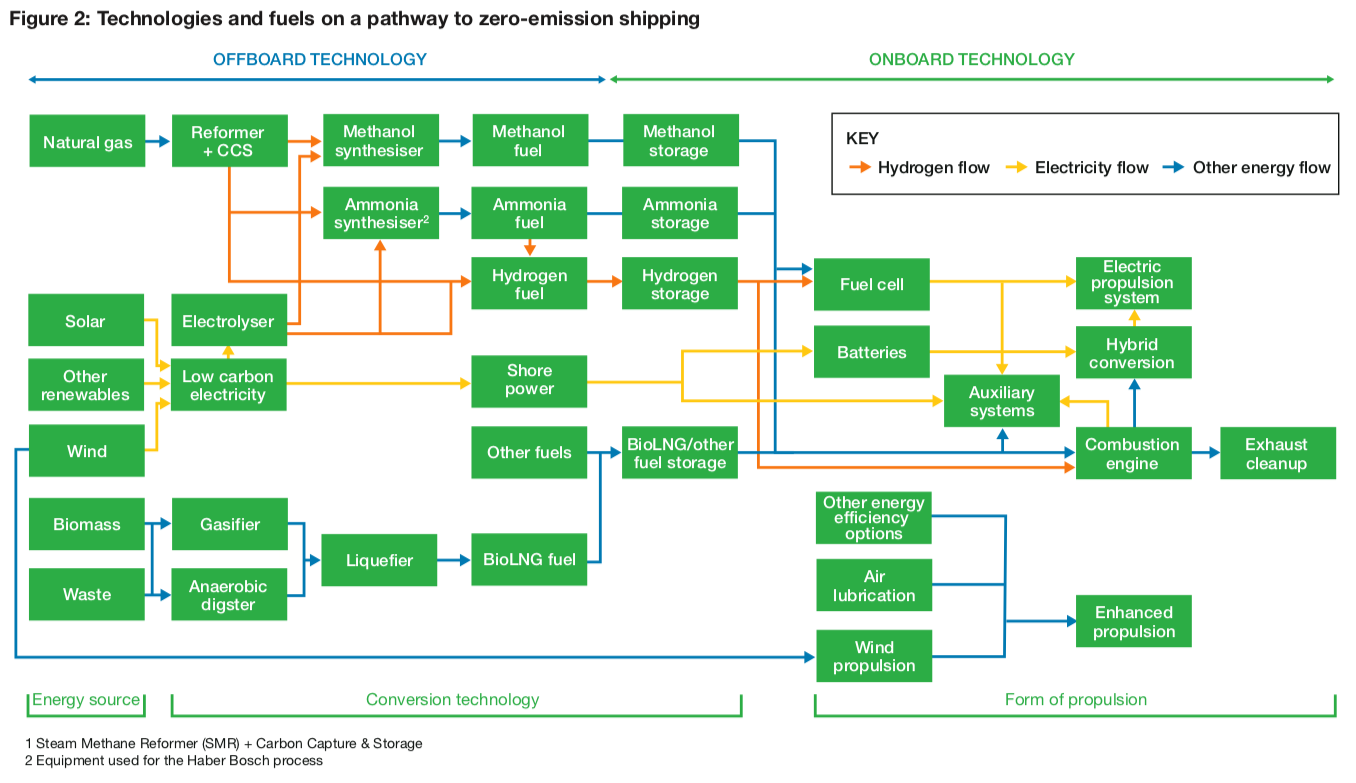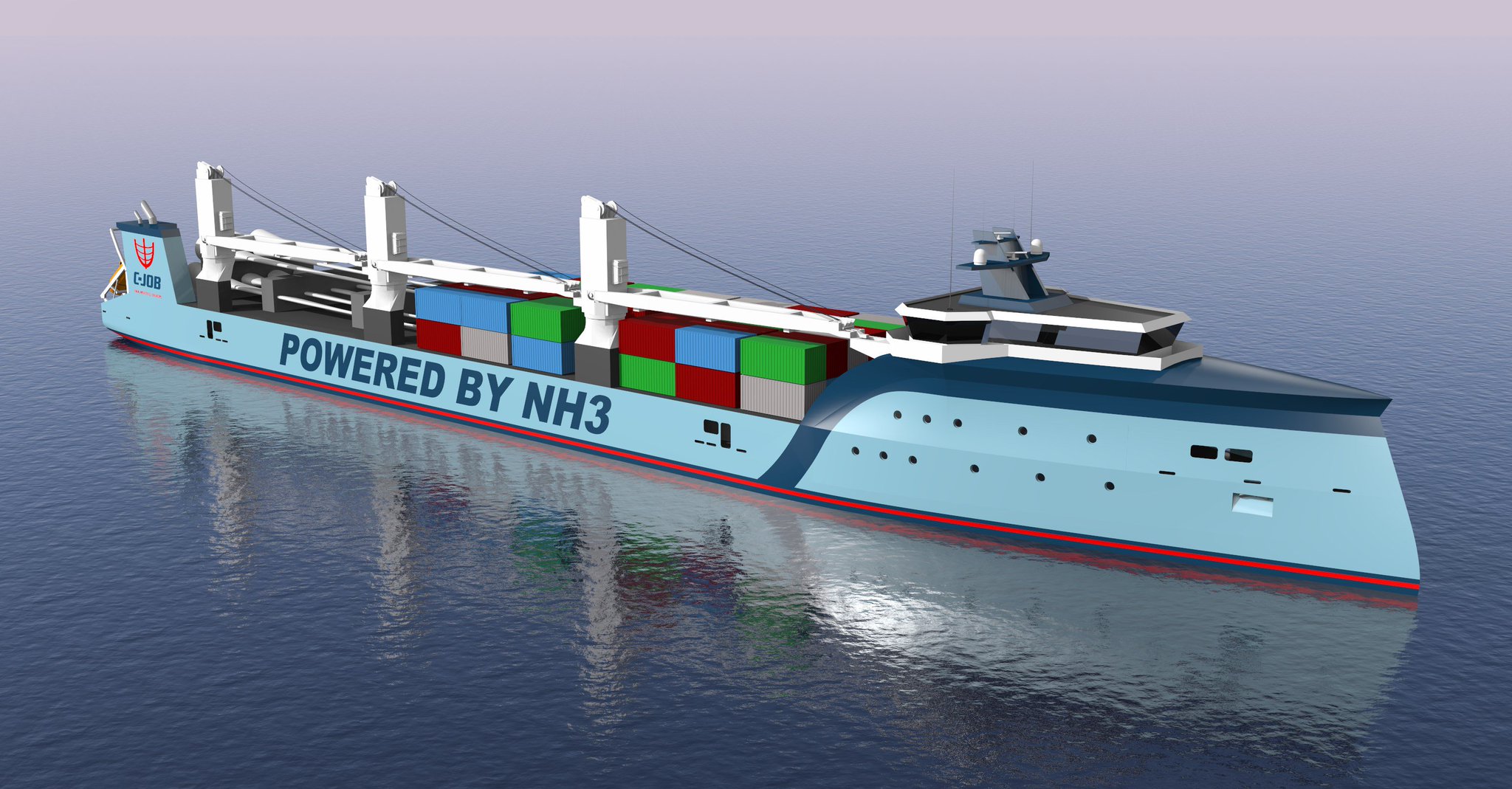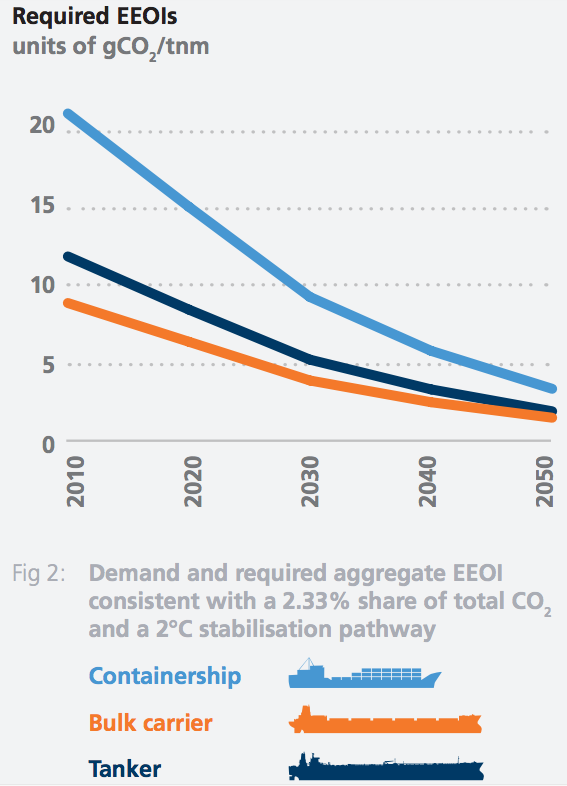
Based on their analysis, UMAS and the University College of London conclude that scalable e-fuels have the highest potential to meet shipping’s new decarbonization targets, but that the next decade is critical to ensure supply chains are ready to supply these fuels. Ammonia-LNG dual-fuel vessels represent the lowest-risk, cheapest decarbonization option to the mid 2030s.

